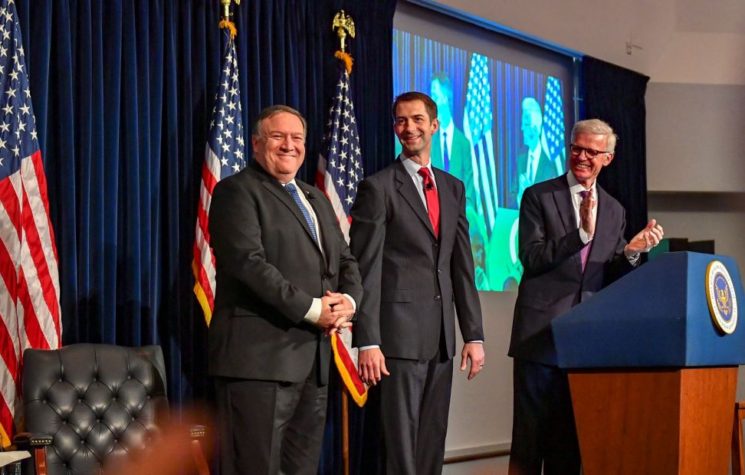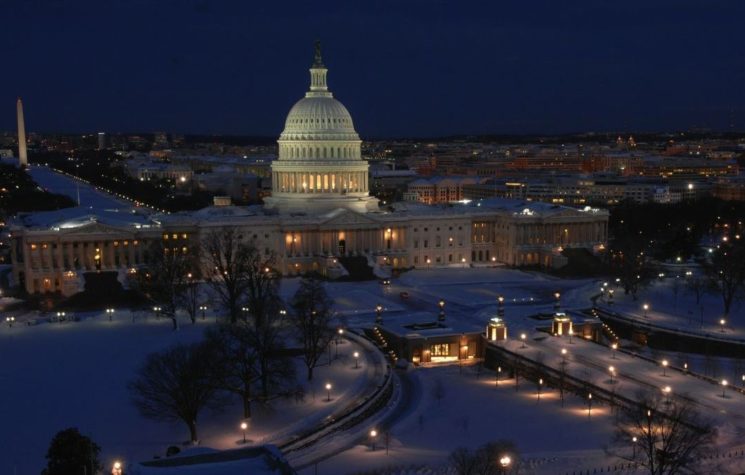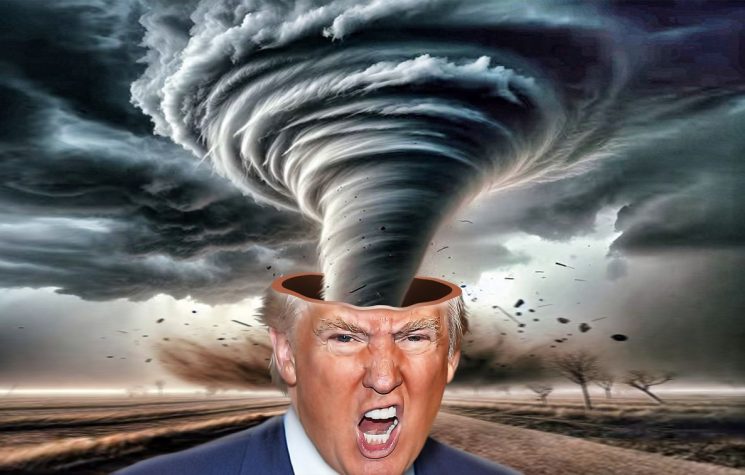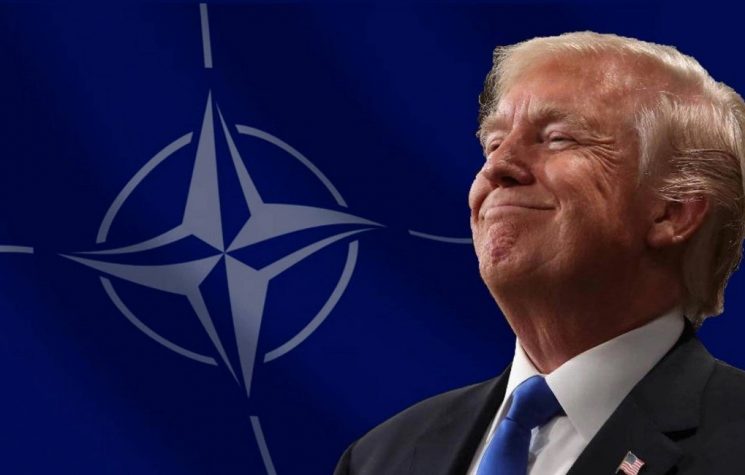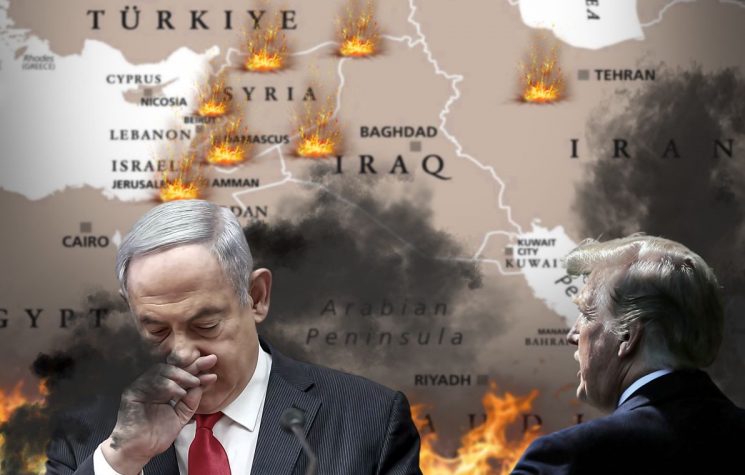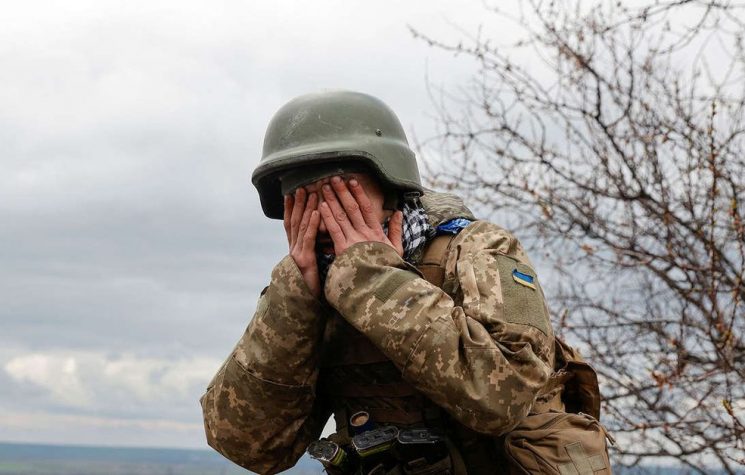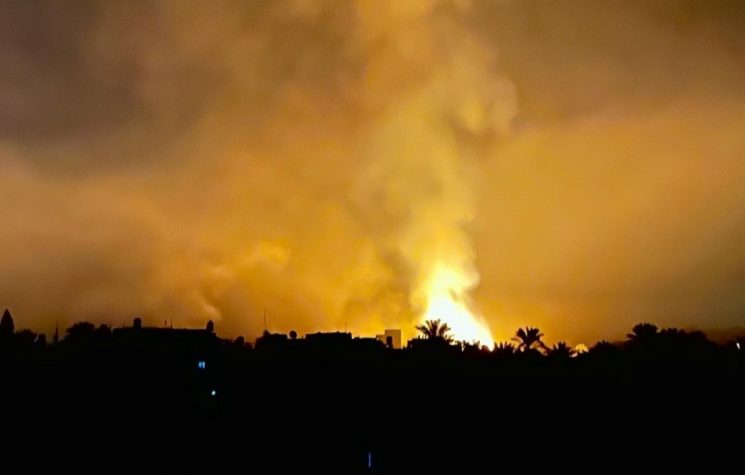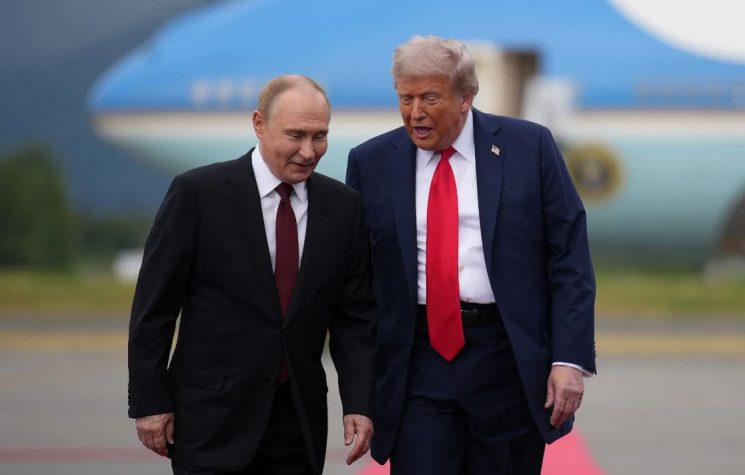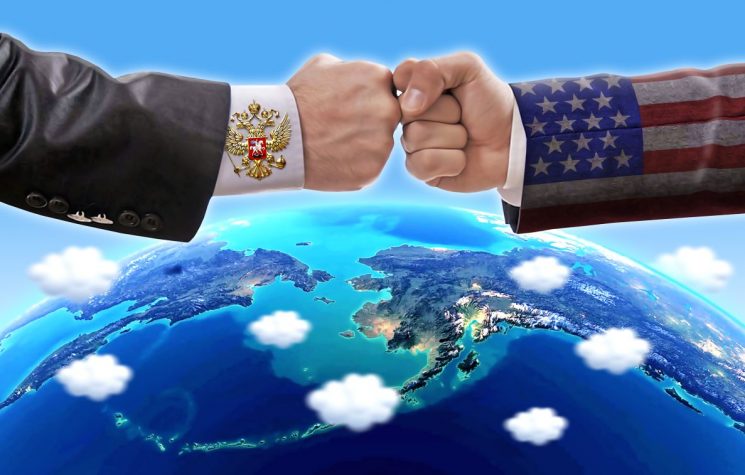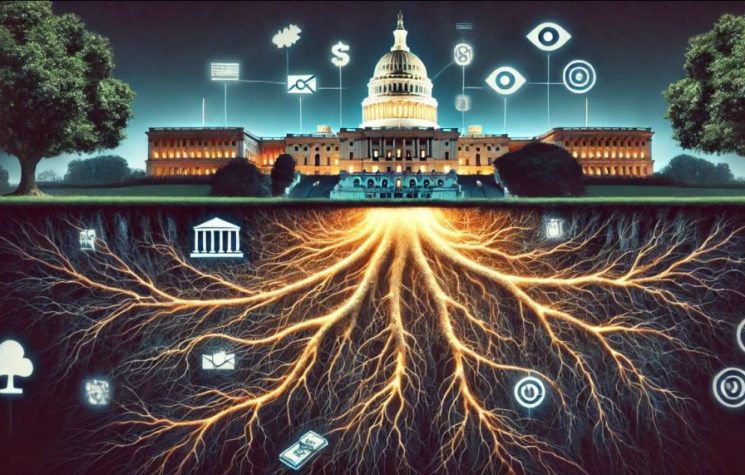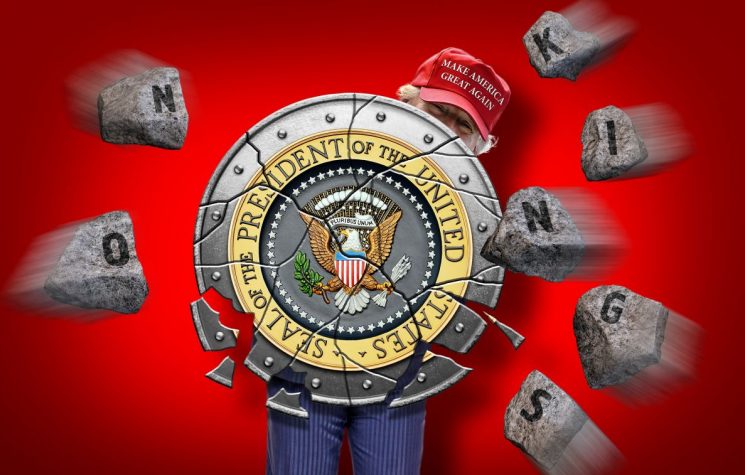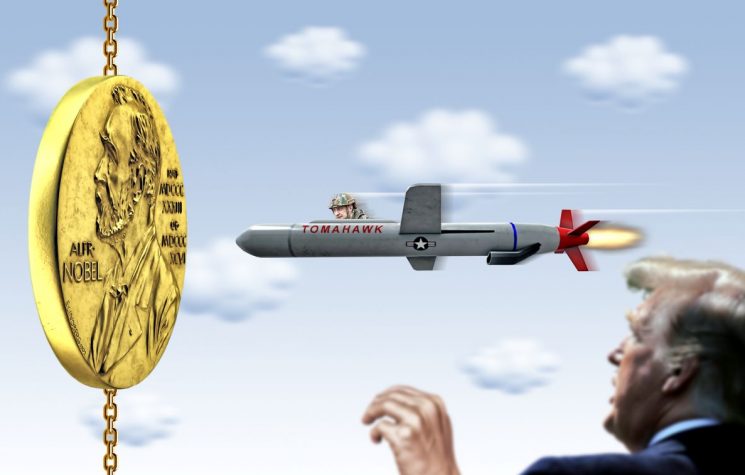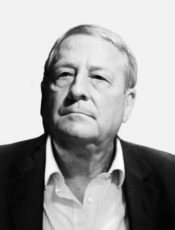The current frenzy to impeach President Donald Trump sometimes in its haste reveals that which could easily be hidden about the operation of the Deep State inside the federal government. Congress is currently obtaining testimony from a parade of witnesses to or participants in what will inevitably be called UkraineGate, an investigation into whether Trump inappropriately sought a political quid pro quo from Ukrainian leaders in exchange for a military assistance package.
The prepared opening statement by Lieutenant Colonel Alexander Vindman, described as the top Ukraine expert on the National Security Council (NSC), provides some insights into how decision making at the NSC actually works. Vindman was born in Ukraine but emigrated to the United States with his family at age three. He was commissioned as an army infantry officer in 1998 and served in some capacity in Iraq from 2004-5, where he was wounded by a roadside bomb and received a purple heart. Vindman, who speaks both Ukrainian and Russian fluently, has filled a number of diplomatic and military positions in government dealing with Eastern Europe, to include a key role in Pentagon planning on how to deal with Russia.
Vindman, Ukrainian both by birth and culturally, clearly was a major player in articulating and managing US policy towards that country, but that is not really what his role on the NSC should have been. As more than likely the US government’s sole genuine Ukrainian expert, he should have become a source of viable options that the United States might exercise vis-à-vis its relationship with Ukraine, and, by extension, regarding Moscow’s involvement with Kiev. But that is not how his statement, which advocates for a specific policy, reads. Rather than providing expert advice, Vindman was concerned chiefly because arming Ukraine was not proceeding quickly enough to suit him, an extremely risky policy which has already created serious problems with a much more important Russia.
Vindman apparently sees Ukraine-Russia through the established optic provided by the Deep State, which considers global conflict as the price to pay for maintaining its largesse from the US taxpayer. Continuous warfare is its only business product, which explains in part its dislike of Donald Trump as he has several times threatened to upset the apple cart, even though he has done precious little in reality. Part of Vindman’s written statement (my emphasis) is revealing: “”When I joined the NSC in July 2018, I began implementing the administration’s policy on Ukraine. In the Spring of 2019, I became aware of outside influencers promoting a false narrative of Ukraine inconsistent with the consensus views of the interagency. This narrative was harmful to US government policy. While my interagency colleagues and I were becoming increasingly optimistic on Ukraine’s prospects, this alternative narrative undermined US government efforts to expand cooperation with Ukraine.”
Alexander Vindman clearly was pushing a policy that might be described as that of the Deep State rather than responding to his own chain of command where it is the president who does the decision making. He also needs a history lesson about what has gone on in his country of birth. President Barack Obama conspired with his own version of Macbeth’s three witches – Rice, Power and Jarett – to overthrow the legitimate government of Ukraine in 2014 because it was considered to be too close to Moscow. The regime change was brought about by “mavericks” like the foul-mouthed neocon State Department officer Victoria Nuland and the footloose warmonger Senator John McCain. Vice President Joe Biden also appeared on the scene after the “wetwork” was done, with his son Hunter trailing behind him. Since that time, Ukraine has had a succession of increasingly corrupt puppet governments propped up by billions in foreign aid. It is now per capita the poorest country in Europe.
Washington inside-the-beltway and the Deep State choose to blame the mess in Ukraine on Russian President Vladimir Putin and the established narrative also makes the absurd claim that the political situation in Kiev is somehow important to US national security. The preferred solution is to provide still more money, which feeds the corruption and enables the Ukrainians to attack the Russians.
Colonel Vindman, who reported to noted hater of all things Russian Fiona Hill, who in turn reported to By Jingo We’ll Go To War John Bolton, was in the middle of all the schemes to bring down Russia. His concern was not really over Trump vs. Biden. It was focused instead on speeding up the $380 million in military assistance, to include offensive weapons, that was in the pipeline for Kiev. And assuming that the Ukrainians could actually learn how to use the weapons, the objective was to punish the Russians and prolong the conflict in Donbas for no reason at all that makes any sense.
Note the following additional excerpt from Vindman’s prepared statement: “….I was worried about the implications for the US government’s support of Ukraine…. I realized that if Ukraine pursued an investigation into the Bidens and Burisma, it would likely be interpreted as a partisan play which would undoubtedly result in Ukraine losing the bipartisan support it has thus far maintained.”
Vindman’s concern is all about Ukraine without any explanation of why the United States would benefit from bilking the taxpayer to support a foreign deadbeat one more time. One wonders if Vindman was able to compose his statement without a snicker or two intruding. He does eventually go on to cover the always essential national security angle, claiming that “Since 2008, Russia has manifested an overtly aggressive foreign policy, leveraging military power and employing hybrid warfare to achieve its objectives of regional hegemony and global influence. Absent a deterrent to dissuade Russia from such aggression, there is an increased risk of further confrontations with the West. In this situation, a strong and independent Ukraine is critical to US national security interests because Ukraine is a frontline state and a bulwark against Russian aggression.”
The combined visions of Russia as an aggressive, expansionistic power coupled with the brave Ukrainians serving as a bastion of freedom is so absurd that it is hardly worth countering. Russia’s economy is about the size of Italy’s or Spain’s limiting its imperial ambitions, if they actually exist. Its alleged transgressions against Georgia and Ukraine were both provoked by the United States meddling in Eastern Europe, something that it had pledged not to do after the Soviet Union collapsed. Ukraine is less an important American ally than a welfare case, and no one knows that better than Vindman, but he is really speaking to his masters in the US Establishment when he repeats the conventional arguments.
It hardly seems possible, but Vindman then goes on to dig himself into a still deeper hole through his statement’s praise of the train wreck that is Ukraine. He writes “In spite of being under assault from Russia for more than five years, Ukraine has taken major steps towards integrating with the West. The US government policy community’s view is that the election of President Volodymyr Zelensky and the promise of reforms to eliminate corruption will lock in Ukraine’s Western-leaning trajectory, and allow Ukraine to realize its dream of a vibrant democracy and economic prosperity. The United States and Ukraine are and must remain strategic partners, working together to realize the shared vision of a stable, prosperous, and democratic Ukraine that is integrated into the Euro-Atlantic community.”
Alexander Vindman does not say or write that the incorporation of Ukraine into NATO is his actual objective, but his comments about “integrating with the West” and the “Euro-Atlantic community” clearly imply just that. The expansion of NATO up to Russia’s borders by the rascally Bill Clinton constituted one of the truly most momentous lost foreign policy opportunities of the twentieth century. The addition of Ukraine and Georgia to the alliance would magnify that error as both are vital national security interests for Moscow given their history and geography. Vindman should be regarded as a manifestation of the Deep State thinking that has brought so much grief to the United States over the past twenty years. Seen in that light, his testimony, wrapped in an air of sanctimoniousness and a uniform, should be regarded as little more than the conventional thinking that has produced foreign policy failure after failure.










